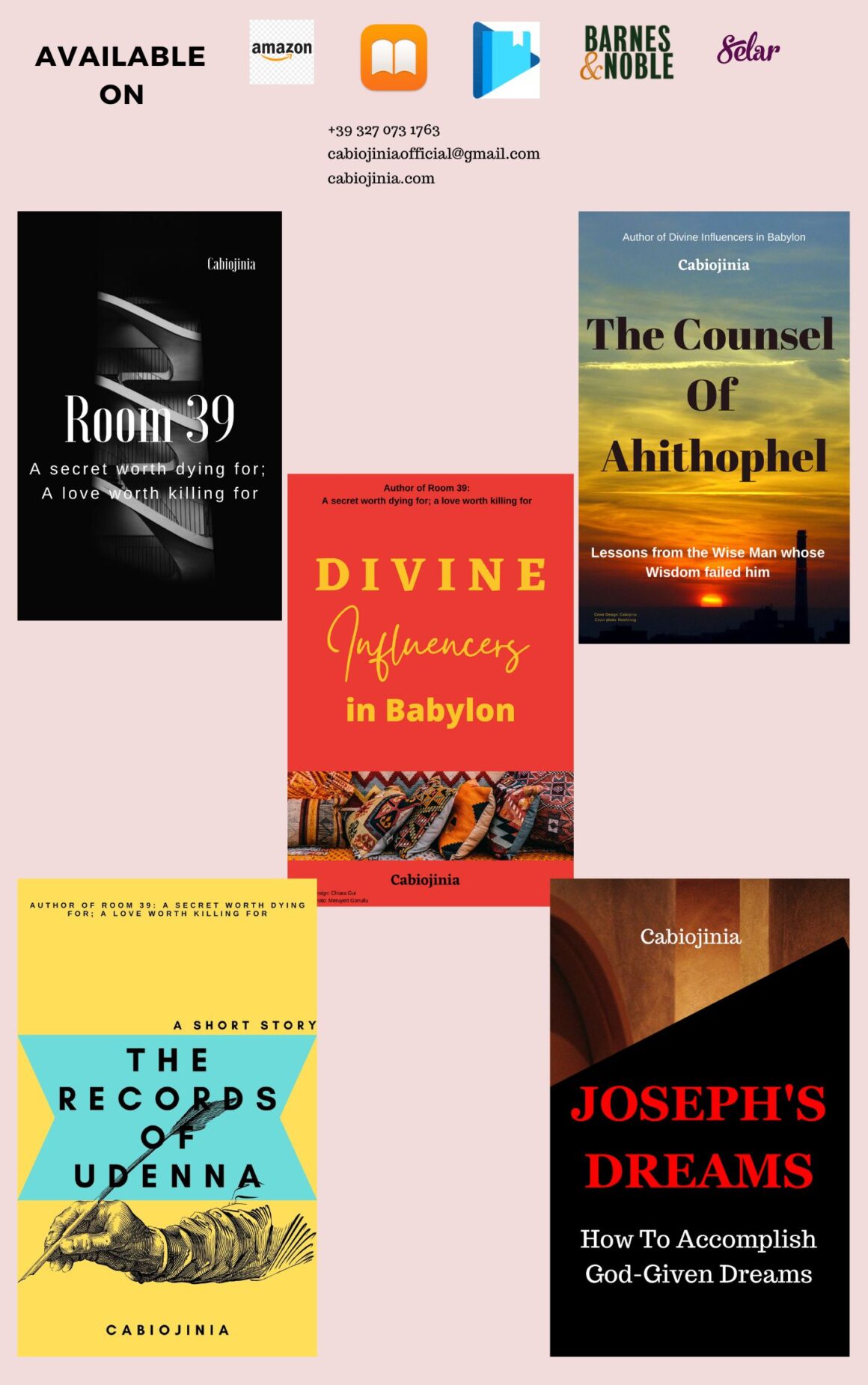10 things to do when an idea isn’t or seem not to be working.
If you’re reading this article, there’s a probability that you’re at a cross-road; your revolutionary business/economic/social/political idea is experiencing hiccups here and there. So, you’re confused about the best step to take.
There are three options: Eliminate the idea and the projects around it; Pause the idea while you identify what or why it is not working; Keep moving believing that in some way things will work out well.
There’s a tendency to get disposed of an idea that isn’t working or that seem not to be working, especially after a few trials. That may seem easy and somehow less expensive compared to starting all over with a new idea. But that is not always true.
Wisdom, however, demands that you make some considerations before you finally discard that idea. Some people have not succeeded in a thing because they’re always quick to conclude that an idea isn’t viable; they never stay long enough with any idea. All they do is simply work on it for a few weeks, and when the desired fruits delay, they back out and jump on the next idea. They never allow the yeast to act on the flour long enough. Imagine if Thomas Edison had completely jettisoned the idea of the electric lamp after numerous attempts, we wouldn’t be here today or it’d have taken us longer to get here.
So, before you throw in the towel and jump on the next thing, quickly consider these bullet points:
1. Is that God’s right path for you?
I believe in having God give me a green light on any major idea I wish to pursue. I love to tell Him my plans and learn what He’ll say. Life is full of uncertainties and contingencies, so if you have One that offers precision and who foresees every contingency, why not trust in His wisdom.
The Bible says that when I commit my plans into God’s hands, He will establish my thoughts. His green light is a guarantee of the success of the project and that He’ll be with me when inevitable storms arise.
As I wrote a couple of days ago, there’s something about knowing that you’re on the right path; that you’re doing exactly what God wants you to do. It’s satisfying in the presence of hunger, encouraging before discouragement, soothing amidst the pains and revitalising even in the face of death. When you receive a Word from Him, hold on to it through thick and thin. If you heard right, just know that God is NEVER WRONG.
So, the first tip is to constantly verify with God; He may ask you to stop, pause or keep moving. Sometimes God wants you to stay on it long enough before you can see the fruits of your labour. Some other times He wants you to use the experience garnered for your next project.
2. Is that idea worth it?
Is that idea really worth it?
This is an important question to consider – why?
Why you set out in the first place to pursue that goal; what was your vision? What did you intend to accomplish with that idea? If you feel strongly about that idea, don’t allow discouragement, resistance, lack of resources etc. to stop you.
Yes, the world needs to know about that idea, taste that product, enjoy that service, read that book and hopefully apply it to improve lives. So, do you strongly believe that your idea is worth fighting for? If the answer is yes, then don’t throw in the towel.
3. Information on Precedents:
Your decisions, except they’re divine or out of intuition, are usually based on the amount of information you have. Not all ideas are new or groundbreaking discoveries; they may simply be old things that are refined and repackaged for this age. And several times, the path towards their realisation follow the same path her siblings walked on in the past decades or centuries.
So, learn from the history of men and women who had the same or similar ideas, the difficulties they encountered and how they overcame them; you may find so much parallelism with yours. Having these pieces of information helps you a lot in decision making. So, search for precedents on that idea. And seek professional guidance as well.
4. Different growth patterns:
Some plants are annual crops, others biennial, while others are perennial. Just as crops differ in how long they take to develop the radicle, shoot out the plumule, have branches, bear fruits and ripen, so ideas have different growth patterns.
Also, some ideas are seasonal, that is, they complete their life cycle within a season – executed, their life cycle ends. Trying to drag past its season may not work. Other ideas, however, continue for longer periods. So, you want to find out in what category your idea falls.
5. Check for Appropriate Timing:
You also need to look at timing, whether the implementation is now or at a future date. While good timing may not be not everything, bad timing can be fatal; some ideas have died prematurely and businesses collapsed because they were delivered at the wrong time. This applies both in business plans or organisational restructuring or introducing new policies in government/institutions.
While some ideas might work immediately, others may have to wait until some things are in place. Your idea might be revolutionary in your mind but if you rush into it, it may fail. The idea isn’t wrong, it was the time of execution that was.
Don’t confuse appropriate timing with unending delays that make the ideas die in the uterus.
6. Environmental factors:
A farmer can’t do much about the weather but he can make the most from it. He can’t change how many months he’ll have rainfall, but he can make the most of the months of rainfall and store water in reservoirs for the dry season. Some ideas thrive best in a given environment but may not grow in another. Even in the same climate, you may find things grow faster in a region compared to others.
Another environmental factor may be the availability of natural resources that you need to grow your idea. These resources may not necessarily be raw materials that are buried under the earth crust, they could be access to the internet and its resources, transport services, good roads and other social amenities. Lack of these can have a great impact on whatever idea you want to nurture, except the idea is actually to change them.
So, when an idea seems not to be taking root, check if your environment is conducive or not. Maybe you need more patience or you may need a change of environment.
7. Human resources:
Some people set off to accomplish a thing just because they have an idea. That’s good. But it’ll be better to start by checking if you have a bit of the know-how needed to sustain the idea. I’m not talking about having all it’ll ever take to succeed. No. Just the fundamentals. About 90% or so of small businesses fail within three years, so, you want to take a few more months to organise before birthing the dream. Then, as you grow, you accompany it with constantly honing your skill-set.
Furthermore, while some ideas can be pursued by a singular person for some time, others require a team from the onset. And to build a team isn’t simple.
So, instead of discarding the idea, think of maybe taking a pause, while you acquire the necessary soft and hard skills and build an effective team.
8. Resistance that comes with a new idea:
Not everyone is receptive to new ideas. New ideas often attract pushbacks from people who are not willing to let go of old ideas. These may be people who currently benefit directly or indirectly from the status quo. You need to understand that and prepare for it.
If the idea is worth it and will improve the lives of people and the way things are done, you shouldn’t discard it. If we all bow to the threats of the big guys in the organisation or business, the spirit of innovation will be strangled to death.
Also, because people are used to the old way of doing things, they’ll likely be sceptical about a new idea in town, you need to respect that and allow your new idea to gradually permeate.
9. Target consumers/audience:
Another reason your idea isn’t working might be that you didn’t define your target audience/clients from the beginning.
Your target audience has to be clearly defined. Who is that product or service or innovation targeting? This is important because it helps you understand if that idea will be viable in your environment or how best to make it get to them.
We live in a world that has been made small by technological infrastructures, especially the internet; businesses can exchange goods and services online without moving products across country lines or continent. An innovative idea birthed in Africa can spread to North America in a very short time.
But that’s not the whole picture because some things still have to be done offline; not all ideas can be executed solely via the internet. So, knowing your target clients and locating your base closer to them is vital. If your idea requires sharing pieces of information speedily across the globe, then access to internet services can’t be ignored.
10. Growth occurs in the dark also.
Sometimes our metrics aren’t so right. The parameters we employ in measuring growth and success sometimes don’t take into account the growth that occurs in the dark, away from the naked eyes.
When you plant a seed, you don’t come back after a day and dig it up to see if it has grown – that will be detrimental. You leave it there, water and weed around it in faith, believing that something good is going on inside although you don’t see it on the surface.
So, while you may not be seeing any tangible impact of your idea, remember that it could be the root phase of that plant. Allow it to take root.
Also, find a way to evaluate the impact you may be making; an impact that you may not readily see. Get feedback, use questionnaires. If you can’t seem to find a way to determine this, then trust the process.
So, there you have the 10 things to do when an idea isn’t or seem not to be working.
BONUS: Can your idea be accomplished using a different business model, organisational pattern, method of delivery? Sometimes the way we set out to accomplish our dreams may not be the best way to express them. That’s not a problem. We grow, we learn and we adapt. So, instead of shutting down the idea completely, you can simply reroute it.
May God grant you divine ideas that will be viable where you are.















